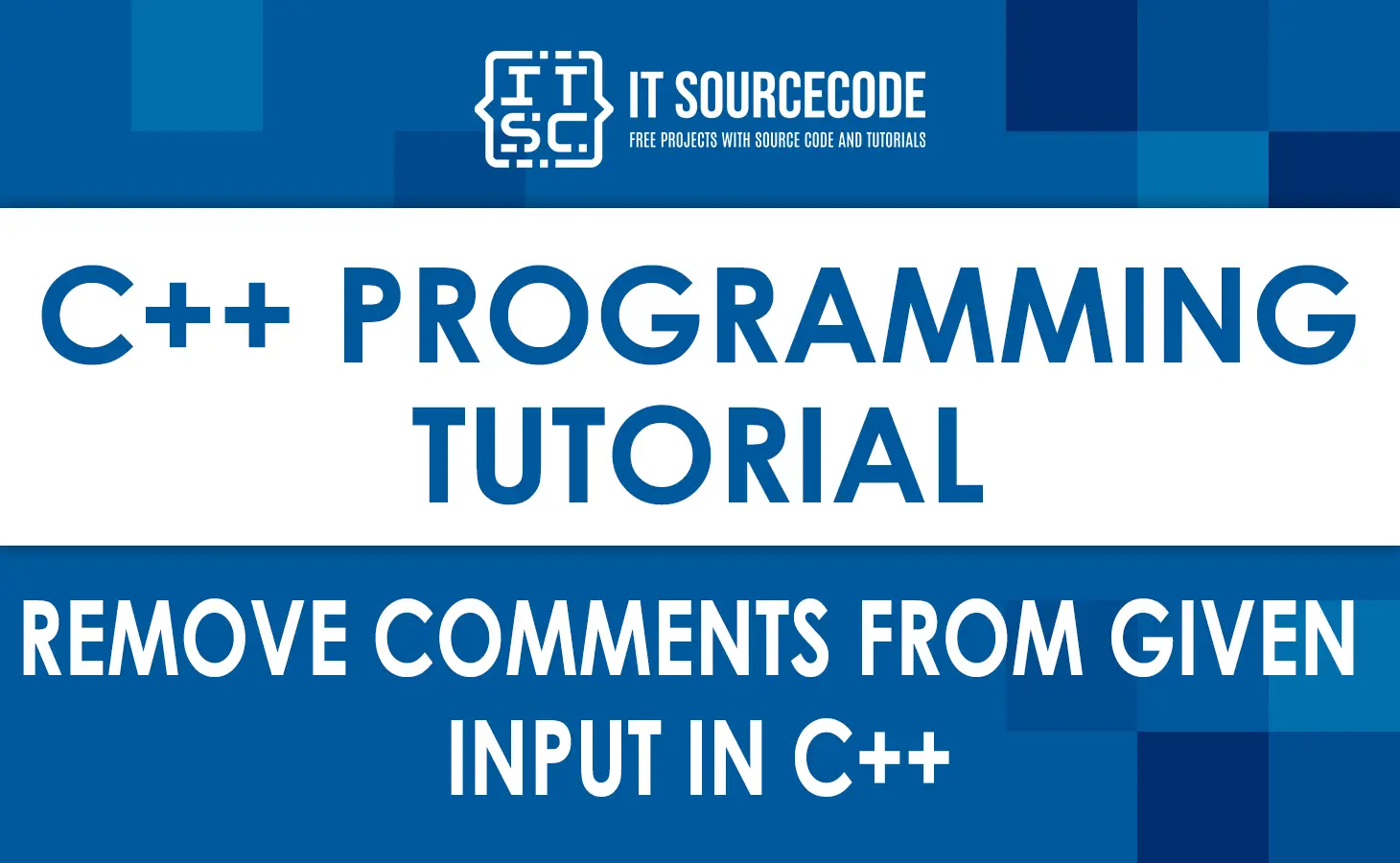By discussing this tutorial, we will know how to remove comments in C++ and how to use them with the help of examples. Why is removing comments important in C++ programming?
Remove the comments from a C++ program that have been provided as input. The i-th line of the source code is the source[i] in the vector referred to as “source”.
This happens when the newline character \n is used to divide the source code text. Also, You must be familiar with comments in C++ in order to learn how to use them effectively. Line comments and block comments are the two forms of comments that may be created in C++.
The text to the right of the string "\", represents a line comment; thus, the computer will disregard that string.
The multiline comment "\* The *\" indicates that the string from “\* C++ Syntax \*” shall be disregarded.
Priority is given to the first helpful comment; if the string // appears in a block comment, it is disregarded. The string /* is also disregarded if it appears in a line or block comment.
What are comments in C++ program?
It is possible to use comments in C++ to explain the code and make it easier to read. It also has the capability of preventing code from being executed when alternative code is being tested. You have the option of using a single line or many lines for your comments.
How do you remove comments in C++?
In the manner of a perfect compiler, we shall parse the text line by line. When we come across / or ‘/* /*‘ we shall disregard all the characters before and after them.
The method removeString(vectorstring>&source) removes the comments from a source code before returning the code.
Remove all the comments from a C++ program you’ve been given.
By minimizing your browser, we recommend that you test this on your own.
There will be two flag variables, one to indicate Remove all the comments from a C++ program you’ve been given. The start of a single-line comment and one to indicate the start of a multiline comment. All characters in between are ignored when a flag is placed in a comment.
As previously noted, the following code in C++ implements the example code below.
#include <iostream>
using namespace std;
string removeComments(string prog)
{
int k = prog.length();
string result;
bool single_comments = false;
bool multiple_comments = false;
for (int j=0; j<k; j++)
{
if (single_comments == true && prog[j] == '\n')
single_comments = false;
else if (multiple_comments == true && prog[j] == '*' && prog[j+1] == '/')
multiple_comments = false, j++;
else if (single_comments || multiple_comments)
continue;
else if (prog[j] == '/' && prog[j+1] == '/')
single_comments = true, j++;
else if (prog[j] == '/' && prog[j+1] == '*')
multiple_comments = true, j++;
else result += prog[j];
}
return result;
}
int main ()
{
string prog = " /* Example program */ \n"
" int main int() \n"
" { \n"
" // variable declaration \n"
" int x, y, z; \n"
" /* This is an example of \n"
" multiline \n"
" comment for \n"
" testing */ \n"
" x = y + z; \n"
" } \n";
cout << "Given Program \n";
cout << prog << endl;
cout << " Modified Program ";
cout << removeComments(prog);
return 0;
}Approaches to the Problem’s Solution
- As an ideal compiler would, we’ll parse the string line by line. When we encounter
//or ‘/* /*‘, we’ll simply ignore everything in the brackets and follow them. - When the function
removeString(vectorstring>&source)is called, it removes all comments from the source code. - When the comment removal variable is set to false, it checks whether a given string or character is a comment.
- Starting a block comment while outside of a block will cause us to skip the following two characters and enter that block as if we had started it there already.
- By skipping over the next two characters and no longer being in a block, we finish a block comment.
- The rest of the line will be ignored if we begin a line comment outside of a block.
- A character is recorded if it is not part of a block comment or if it isn’t the beginning of a comment.
- In the event that we are not in a block at the end of a line, we will record the line instead.
- The time complexity of the algorithm is O(source), and it executes instantly. The input string serves as the data source.
What exactly are these comments?
The computer’s compiler or interpreter does not process statements labeled as comments. To put it another way, comments are fundamentally statements that cannot be executed.
They are used to describe and define the workings of our code so that consumers will have an easier time comprehending it. We can also claim that the code is intended for computer compilers while the comments are intended for human comprehension.
Conclusion
Remove C++ application comments. “source[i]” is the i-th source code line. C++ has line and block comments.
The first constructive comment is highly important. / is ignored in block comments. /* is ignored in line and block comments.


thanks alot of infformation mantap
Thanks to your compliment